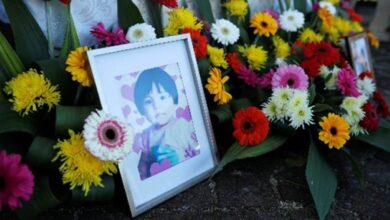El Salvador: How Effective Has Nayib Bukele’s Anti-violence Strategy Been?
Since the government of El Salvador began the state of emergency at the end of March, the country has remained tense and calm. We analyze how Nayib Bukele's anti-violence strategy has worked.

Photo: TW-nayibbukele
LatinAmerican Post | Yolanda González Madrid
Listen to this article
Leer en español: El Salvador: ¿Qué tan efectiva ha sido la estrategia antiviolencia de Nayib Bukele?
March was a month to forget in El Salvador, as its last days were marked by gang violence. This resulted in President Nayib Bukele applying an emergency regime, which has been prolonged in order to reduce the rates of homicides and extortion in the country. Now, almost six months after its implementation, the strategy seems to be having an effect in numbers, but with serious complaints of human rights violations.
According to information published by the Salvadoran Ministry of Justice and Security, more than 50,000 people have been captured for being suspected gang members. Although Bukele is giving results, it is expected that the measure will once again have an extension that will last until the end of September. In turn, the government is also preparing a series of laws to keep these individuals longer in prison.
You may also be interested in: State Of Exception: What Is Happening In Ecuador?
However, not all results are positive. Certain organizations such as Human Rights Watch have expressed their concern to the Salvadoran government about the treatment of detainees, in addition to a large number of complaints about the imprisonment of some innocent people. This, without a doubt, contrasts a bit with a survey by the José Simeón Cañas Central American University that indicates that 89.3% of citizens see Bukele's anti-violence strategy as effective.
A big positive change
The arrest of gang members has drastically reduced the rate of homicides and extortions in El Salvador, according to sources close to the government. Bukele himself assured that the country exceeded 150 days without violent acts, a historical figure that goes hand in hand with the work of the National Civil Police and the Armed Forces. The president wishes to completely end the gangs so that they do not return to intimidate the population.
In recent days, the Salvadoran nation celebrated its patron saint festivities in a climate of certain tranquility, a situation that has not been seen for years. The positive change in most areas is leaving a feeling of peace, especially at night, since the fear of the gangs caused total silence.
For its part, the Association of Distributors of El Salvador (ADES) affirms that extortions have decreased by 40-80% since the activation of the exception regime. It is worth mentioning that the theft of merchandise and contraband were two of the main activities of the gangs to generate their income. With this, companies have already begun to invest in certain sectors to try to cause a better economic impact on the country.
“Our companies are growing close to 15%, compared to what we grew in 2021; which was around 30% (compared to 2020)”, highlighted Alejandro Zelaya, Minister of Finance, for local media. Therefore, it is estimated that there will be a 50% increase in tax collection, not to mention that the 20% of GDP that we lost year after year due to crime will no longer pose a threat.
The shadows of the exception regime
At what cost has the Bukele government managed to stop the violence in El Salvador? According to a report by the University Human Rights Observatory (OUDH), the arrests carried out during the emergency regime have been marked by arbitrariness, human rights violations, deaths in state custody, and prison overcrowding (247% ) that has forced the government to build a new site.
“Not all the people who have been arrested are gang members. There are innocent people who have been captured and their personal freedom has been affected," Danilo Flores, director of the OUDH, said in the report. Given this, the government assumes that 1% of the arrests would not be linked to any gang and that two out of every six detainees would be in jail for theft or assault.
Likewise, the OUDH investigator, Natalia Ponce, explained that between March and July there were 63 alleged victims of torture, according to an analysis based on journalistic notes. To all this, it should be added that in that same period of time up to 306 cases of violations of the right to personal integrity were processed, most of them due to the refusal of security agents to provide the necessary information to the relatives of the detainees.
In turn, the report also indicates that at least 59 incarcerated people lost their lives in state custody. The reasons, according to Ponce, range from physical aggression from other inmates and/or police officers to negligence in medical care. The figures indicate that all the victims are men, of which 27% were between 18 and 30 years old.
In conclusion, Bukele's anti-violence strategy has been controversial. Certainly, the arrests have reduced extortions and homicides, to the point that the country has entered an atmosphere of certain calm, but that method of fighting violence with more violence is also taking away some innocents. This is where the question arises: does the end justify the means?




